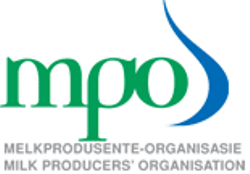
by Kyle Durham, head of Alternative Energy Solutions at FNB Commercial and Dawie Maree, head of Agriculture Information and Marketing at FNB Agribusiness
13 October 2021: Many people outside of agriculture value chains have the mistaken idea that farming and renewable energy are far removed from one another. In fact, nothing could be further from the truth. The vast majority of farmers, irrespective of the scale or nature of their farming operations, are highly dependent on electricity for the sustainability of their farms.
For most, the main source of such energy dependence is the need to ensure that they have access to the electricity they need to power their irrigation systems. Others rely to varying degrees on a stable energy supply for heating or cooling systems, temperature control in packhouses, produce processing, and a variety of other functions essential to generally keeping their farms running optimally.
In recent years, this large-scale dependence on energy by South African farmers has become a source of significant and increasing risk, and cost, for many of them, for a number of reasons. For one, the stellar increases in grid-supplied electricity have massively raised the proportion of input costs made up by farming energy requirements. At the same time, years of unstable and unsecure electricity supply due to load shedding, have limited many farmers from giving effect to their expansion plans, and forced most to invest in generators, which are very expensive to acquire and operate.
Then, there’s the less obvious, but equally concerning, issue of increasing pressure being placed on farmers to reduce their carbon emissions and adopt more sustainable farming operations in general. And the looming prospect of an agriculture carbon tax isn’t doing anything to help the country’s farmers sleep easier at night.
While this basket of energy challenges is obviously a significant source of concern, the good news for farmers is that the evolution of the alternative energy landscape in South Africa, and globally, in recent years offers a relatively straightforward, and increasingly affordable and viable, solution.
One of the most valuable contributing factors to the viability of investment in alternative energy is the rapid development of technology in this space in recent years. Many of the typical grid-tied solutions that have been available to farmers have previously delivered an investment break-even period of around four to five years. Recently, however, a payback period of less than four years is very common, as are internal yields on these alternative energy assets of around 20%, which makes investing in these types of cost-saving systems very compelling. By way of example, the high cost of fuel means that the typical diesel generator will cost a farmer around R4 to R5 per kilowatt hour. In comparison, the levelized cost of energy from a solar plant with batteries averages around R1.40 to R1.80 per kilowatt hour.
Energy storage solutions have also now evolved to the point where alternative energy solutions make far more sense for farmers. Not only are storage components more financially feasible than they were a decade ago (and still coming down in price steadily), but other innovative storage designs, from pump storage to hydrogen systems are also making alternative generation far more appealing, and viable.
And recent regulatory changes around small-scale generation, including the Eskom energy banking legislation, mean that even if a larger than required system generates excess energy than the farm currently needs, or if the farmer’s energy needs a cyclical, the excess energy generated can either be sold back onto the grid, or ‘banked’ to be used when the electricity demands of the farm increase again in the future.
Of course, arguably the most compelling argument for alternative energy investment in the agriculture sector is still the potential cost savings to be achieved. The rising costs of fossil fuel-generated electricity, coupled with the rapidly reducing prices for alternative energy systems, makes investing in sustainable self-generation much more realistic for farmers than may have been the case a few years ago. While we’re not yet at the stage where a reliable alternative energy system can be funded out of a farmer’s day-to-day cash flow, the costs are no longer prohibitively high. And banks are increasingly recognising the long-term value of this type of investment by farmers, which means they are making it easier to access funding via an increasing array of innovative financing solutions specifically designed to meet the unique requirements of farmers.
FNB is a case in point. Rather than merely providing one-size-fits-all alternative energy funding solutions built on traditional credit risk assessment criteria, we assess each request for financing towards renewable energy investment on its individual merits. That includes assessing the appropriateness of equipment suppliers, or recommending those we know to be reliable, evaluating design of the proposed system against the identified current and future needs of the farm, and basing finance decisions on forward looking projections of cost savings, energy security, and the potential for direct positive impact on long-term operational growth.
Ultimately, given the proven ability of alternative energy generation to deliver enhanced farm efficiencies, optimised productivity, and reduced operating costs, coupled with the access that farmers now have to affordable energy systems delivered through innovative funding solutions, there really is no reason why the vast majority of participants in South Arica’s agriculture industry shouldn’t be investing in their own renewable energy systems to power their sustainable success and growth.
Published on Wednesday, 20th October 2021 - 13:01
Recent Posts
disclaimer









